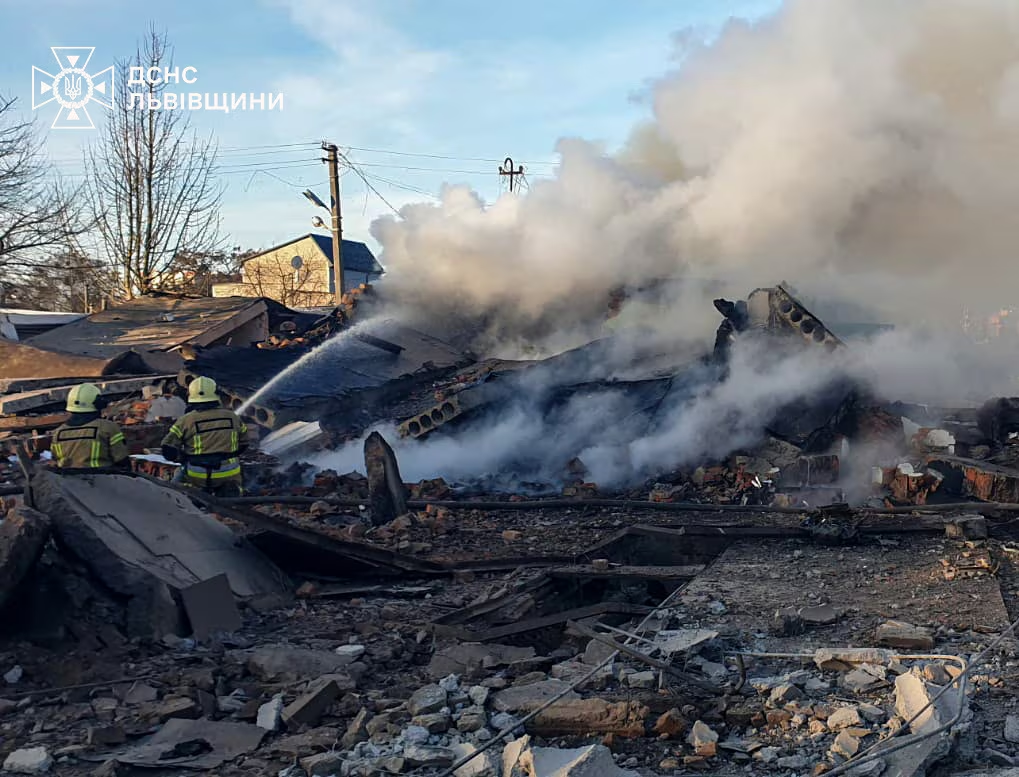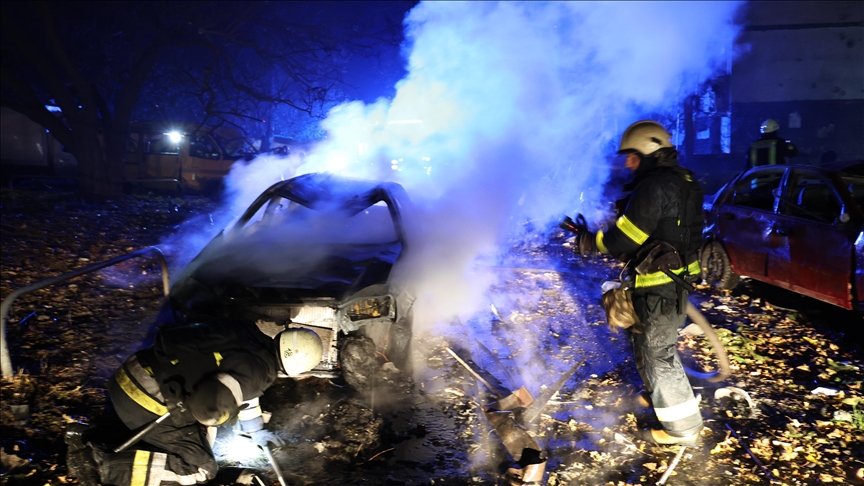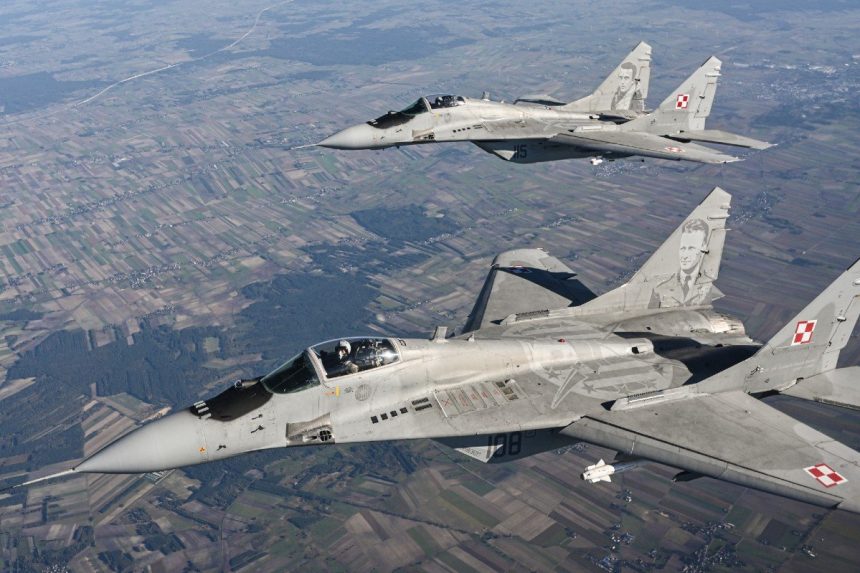On Sunday, Poland scrambled its entire air force in response to a large-scale Russian assault on Ukraine involving over 200 missiles and drones. The attack, which targeted key infrastructure across Ukraine, has been described as one of the largest airstrikes by Russia in recent months, highlighting the escalating intensity of the ongoing war.
Russia deployed a variety of weaponry in this massive assault, including ballistic missiles, aero-ballistic missiles, and Iranian-made Shahed drones. These strikes were aimed at critical infrastructure and strategic locations in western Ukraine, spanning regions such as Odesa, Volyn, Lviv, Dnipro, and Rivne.
In response, Poland’s Operational Command initiated defensive measures, mobilizing Polish and allied aircraft to patrol and secure its airspace. The country’s Operational Command posted on X (formerly Twitter), saying:
“Due to a massive attack by Russia, which is carrying out strikes using cruise missiles, ballistic missiles, and drones against sites located, among other places, in western Ukraine, operations by Polish and allied aircraft have begun.”
READ ALSO: Scholz Defends Call with Putin Amid Criticism and Rising Geopolitical Tensions
The heightened alert underscores the growing concern among neighboring countries about the spillover effects of the conflict, as Russia’s strikes inch closer to NATO borders.

Ukraine’s air defense systems, including newly acquired F-16 fighter jets, were activated to counter the barrage. President Volodymyr Zelensky confirmed that Ukrainian forces had intercepted and destroyed a significant portion of the incoming threats, including 10 air targets and 144 other missiles and drones.
Despite these efforts, the attack caused substantial damage to Ukraine’s infrastructure, disrupting power supplies as winter looms. Russia’s strategy of targeting Ukraine’s energy systems has been described by Zelensky as an attempt to “intimidate with cold and darkness.”
“Russian terrorists once again want to intimidate us with cold and lack of light,” Zelensky said. “They are repeating their actions and trying to get results from them. But the whole world sees and knows that we are defending ourselves against absolute evil, which does not understand any language but force.”
The attack has drawn condemnation from Ukraine and its allies, with calls for greater international unity and support. Andrii Sybiha, Ukraine’s Foreign Minister, described the strike as one of Russia’s “largest air attacks” on civilian and critical infrastructure.
“Russia launched one of its largest air attacks on peaceful cities, sleeping civilians, and critical infrastructure,” Sybiha stated. He labeled Russian President Vladimir Putin as a “war criminal” and emphasized the need for a strong global response: “This is war criminal Putin’s true response to all those who called and visited him recently. We need peace through strength, not appeasement.”
READ ALSO: President Tinubu Confers Nigeria’s National Honour on Indian Prime Minister Narendra Modi
Zelensky echoed this sentiment, urging the international community to remain united against Russian aggression: “The world needs unity. Only together can we stop this evil.”
Poland’s swift response underscores its critical role as a NATO member on the frontlines of the conflict. As a neighboring country to Ukraine, Poland has consistently supported its eastern ally with military aid, humanitarian assistance, and hosting millions of Ukrainian refugees.

Sunday’s mobilization of Polish and allied fighter jets highlights the growing risks of escalation in the region. By scrambling its air force, Poland sends a strong signal of its readiness to defend its airspace and uphold NATO’s collective security commitments.
Russia’s continued targeting of Ukraine’s energy infrastructure is seen as part of a broader strategy to wear down the country’s resilience as winter sets in. These attacks not only disrupt essential services but also aim to sow psychological distress among civilians.
For Ukraine, the repeated strikes underscore the urgent need for advanced air defense systems and international support to bolster its defenses. For neighboring countries like Poland, the attacks are a stark reminder of the conflict’s proximity and the potential for regional instability.
READ ALSO: Russia Launches Devastating Airstrikes, Targeting Ukraine’s Power Grid
As the war in Ukraine rages on, the need for global solidarity and decisive action remains critical. Sunday’s large-scale attack serves as a grim reminder of the stakes involved, not just for Ukraine but for the broader international community.
With winter approaching and the humanitarian toll mounting, the focus must remain on providing Ukraine with the tools to defend itself and deterring further Russian aggression. For Poland and other NATO members, vigilance and preparedness are more crucial than ever in safeguarding peace and stability in the region.
This attack highlights the harsh realities of a conflict that shows no signs of abating and the pressing need for collective strength to counter the challenges ahead.

